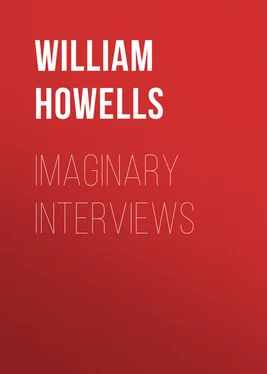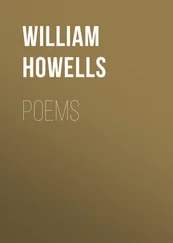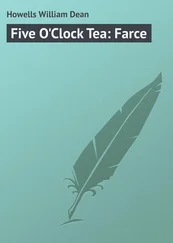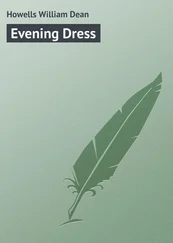William Howells - Imaginary Interviews
Здесь есть возможность читать онлайн «William Howells - Imaginary Interviews» — ознакомительный отрывок электронной книги совершенно бесплатно, а после прочтения отрывка купить полную версию. В некоторых случаях можно слушать аудио, скачать через торрент в формате fb2 и присутствует краткое содержание. Жанр: foreign_prose, на английском языке. Описание произведения, (предисловие) а так же отзывы посетителей доступны на портале библиотеки ЛибКат.
- Название:Imaginary Interviews
- Автор:
- Жанр:
- Год:неизвестен
- ISBN:нет данных
- Рейтинг книги:3 / 5. Голосов: 1
-
Избранное:Добавить в избранное
- Отзывы:
-
Ваша оценка:
- 60
- 1
- 2
- 3
- 4
- 5
Imaginary Interviews: краткое содержание, описание и аннотация
Предлагаем к чтению аннотацию, описание, краткое содержание или предисловие (зависит от того, что написал сам автор книги «Imaginary Interviews»). Если вы не нашли необходимую информацию о книге — напишите в комментариях, мы постараемся отыскать её.
Imaginary Interviews — читать онлайн ознакомительный отрывок
Ниже представлен текст книги, разбитый по страницам. Система сохранения места последней прочитанной страницы, позволяет с удобством читать онлайн бесплатно книгу «Imaginary Interviews», без необходимости каждый раз заново искать на чём Вы остановились. Поставьте закладку, и сможете в любой момент перейти на страницу, на которой закончили чтение.
Интервал:
Закладка:
"Yes, they were very severe on the town for pretending to a pleasure imparted in a language it could not understand a word of. They had all the reason on their side, and they needed it; but the opera is independent of reason, and the town felt that for its own part it could dispense with reason, too. The town can always do that. It would not go seriously or constantly to English opera, though ever so much invited to do so, for all the reasons, especially the patriotic reasons. Isn't it strange, by-the-way, how English opera is a fashion, while Italian opera remains a passion? We had it at its best, didn't we, in the Gilbert and Sullivan operas, which were the most charming things in the world; but they charmed only for a while, and it may be doubted whether they ever greatly charmed the town. The manager of the Metropolitan replaces German with Italian opera, and finds his account in it, but could he find his account in it if he put on 'The Mikado' instead of 'L'Elisir d'Amore'? If he did so, the town would not be here. Why?"
The reader did not try to answer at once. He seemed to be thinking, but perhaps he was not; other readers may judge from his reply, which, when it came, was this: "There seems to be something eternally as well as universally pleasing in Italian opera; but what the thing is, or how much of a thing it is, I wouldn't undertake to say. Possibly the fault of English opera is its actuality. It seizes upon a contemporaneous mood or fad, and satirizes it; but the Italian opera at its lightest deals with a principle of human nature, and it is never satirical; it needn't be, for it is as independent of the morals as of the reasons. It isn't obliged, by the terms of its existence, to teach, any more than it is obliged to convince. It's the most absolute thing in the world; and from its unnatural height it can stoop at will in moments of enrapturing naturalness without ever losing poise. Wasn't that delightful where Caruso hesitated about his encore, and then, with a shrug and a waft of his left hand to the house, went off in order to come back and give his aria with more effect? That was a touch of naturalness not in the scheme of the opera."
"Yes, but it was more racial, more personal, than natural. It was delicious, but we are not sure we approved of it."
"Ah, in Italian opera you're not asked to approve; you're only desired to enjoy!"
"Well, then that bit of racial personality was of the effect of actuality, and it jarred."
"Perhaps you're right," the reader sighed, but he added: "It was charming; yes, it made itself part of the piece. Nemorino would have done just as Caruso did."
At the last fall of the curtain the reader and the writer rose in unison, a drop of that full tide of life which ebbed by many channels out of the vast auditorium, and in two or three minutes left it dry. They stayed in their duplex personality to glance at the silken evanescences from the boxes, and then, being in the mood for the best society, they joined the shining presences in the vestibule where these waited for their carriages and automobiles. Of this company the interlocutors felt themselves so inseparably part that they could with difficulty externate themselves so far as to observe that it was of the quality of "the town" which had gone to Italian opera from the first.
In Mr. Spectator's time the town would have been lighted by the smoky torches of linkboys to its chairs; now it was called to its electric autos in the blaze of a hundred incandescent bulbs; but the difference was not enough to break the tradition. There was something in the aspect of that patrician throng, as it waited the turn of each, which struck the reader and writer jointly as a novel effect from any American crowd, but which the writer scarcely dares intimate to the general reader, for the general reader is much more than generally a woman, and she may not like it. Perhaps we can keep it from offending by supposing that the fact can be true only of the most elect socially, but in any case the fact seemed to be that the men were handsomer than the women. They were not only handsomer, but they were sweller (if we may use a comparative hitherto unachieved) in look, and even in dress.
How this could have happened in a civilization so peculiarly devoted as ours to the evolution of female beauty and style is a question which must be referred to scientific inquiry. It does not affect the vast average of woman's loveliness and taste among us in ranks below the very highest; this remains unquestioned and unquestionable; and perhaps, in the given instance, it was an appearance and not a fact, or perhaps the joint spectator was deceived as to the supreme social value of those rapidly dwindling and dissolving groups.
The reader and the writer were some time in finding their true level, when they issued into the common life of the street, and they walked home as much like driving home as they could. On the way the reader, who was so remotely lost in thought that the writer could scarcely find him, made himself heard in a musing suspiration: "There was something missing. Can you think what it was?"
"Yes, certainly; there was no ballet."
"Ah, to be sure: no ballet! And there used always to be a ballet! You remember," the reader said, "how beatific it always was to have the minor coryphees subside in nebulous ranks on either side of the stage, and have the great planetary splendor of the prima ballerina come swiftly floating down the centre to the very footlights, beaming right and left? Ah, there's nothing in life now like that radiant moment! But even that was eclipsed when she rose on tiptoe and stubbed it down the scene on the points of her slippers, with the soles of her feet showing vertical in the act. Why couldn't we have had that to-night? Yes, we have been cruelly wronged."
"But you don't give the true measure of our injury. You forget that supreme instant when the master-spirit of the ballet comes skipping suddenly forward, and leaping into the air with calves that exchange a shimmer of kisses, and catches the prima ballerina at the waist, and tosses her aloft, and when she comes down supports her as she bends this way and that way, and all at once stiffens for her bow to the house. Think of our having been defrauded of that!"
"Yes, we have been wickedly defrauded." The reader was silent for a while, and then he said: "I wonder if anybody except the choreographic composer ever knew what the story of any ballet was? Were you ever able to follow it?"
"Certainly not. It is bad enough following the opera. All that one wishes to do in one case is to look, just as in the other case all one wishes to do is to listen. We would as lief try to think out the full meaning of a Browning poem in the pleasure it gave us, as to mix our joy in the opera or the ballet with any severe question of their purport."
VI
THE SUPERIORITY OF OUR INFERIORS
The satirical reader introduced himself with a gleam in his eye which kindled apprehension in the unreal editor's breast, and perhaps roused in him a certain guilty self-consciousness.
"I didn't know," the reader said, "that you were such a well-appointed arbiter elegantiarum ."
"Meaning our little discourse last month on the proper form of addressing letters?" the editor boldly grappled with the insinuation. "Oh yes; etiquette is part of our function. We merely hadn't got round to the matter before. You liked our remarks?"
"Very much," our visitor said, with the fine irony characteristic of him. "All the more because I hadn't expected that sort of thing of you. What I have expected of you hitherto was something more of the major morality."
"But the large-sized morals did not enter into that scheme. We deal at times with the minor morality, too, if the occasion demands, as we have suggested. You should not have been surprised to find politeness, as well as righteousness, advocated or applauded here. Naturally, of course, we prefer the larger-sized morals as questions for discussion. Had you one of the larger-sized questions of morality to present?"
Читать дальшеИнтервал:
Закладка:
Похожие книги на «Imaginary Interviews»
Представляем Вашему вниманию похожие книги на «Imaginary Interviews» списком для выбора. Мы отобрали схожую по названию и смыслу литературу в надежде предоставить читателям больше вариантов отыскать новые, интересные, ещё непрочитанные произведения.
Обсуждение, отзывы о книге «Imaginary Interviews» и просто собственные мнения читателей. Оставьте ваши комментарии, напишите, что Вы думаете о произведении, его смысле или главных героях. Укажите что конкретно понравилось, а что нет, и почему Вы так считаете.












